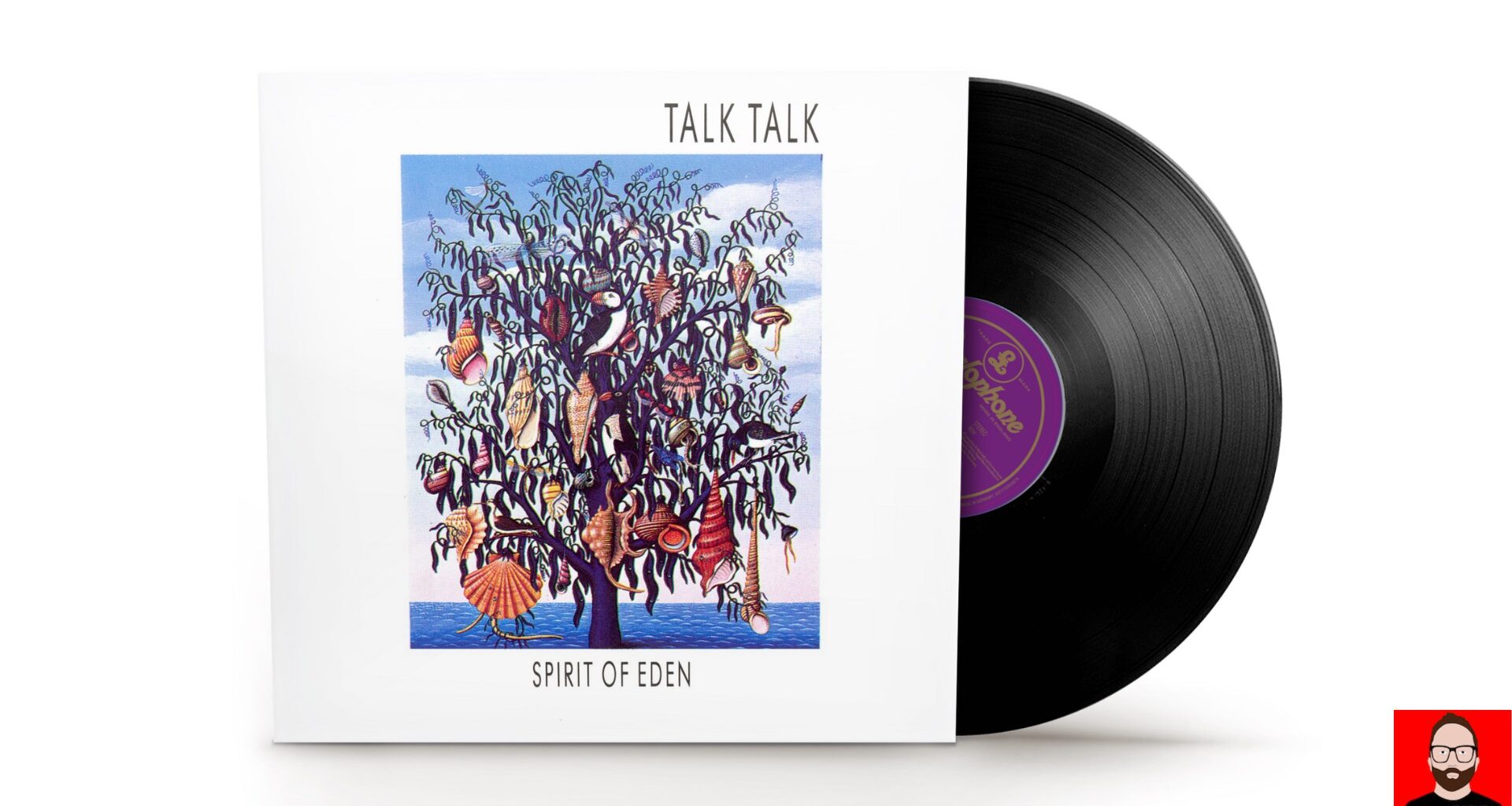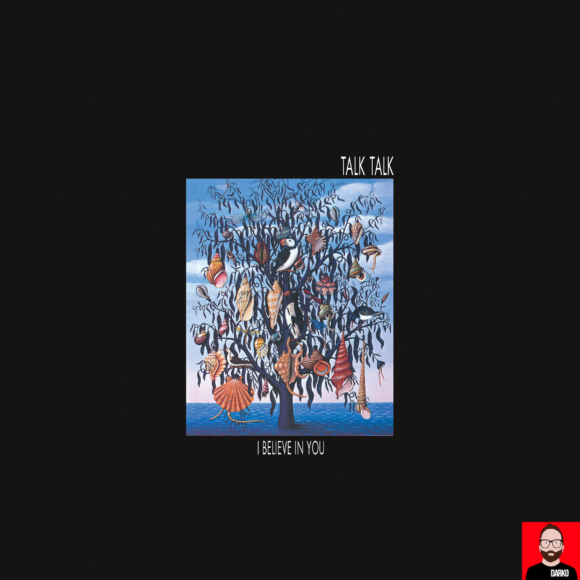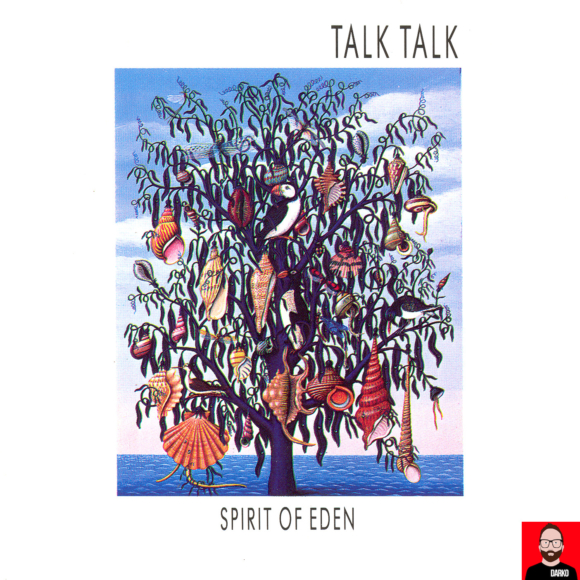Talk Talk weren’t always the godfathers of post-rock. The band that would eventually inspire Sigur Rós and Radiohead started out making the kind of synth-pop hits that defined early MTV and peak-era Top Of The Pops. “It’s My Life” and “Such a Shame” were as infectious as anything Duran Duran or Tears for Fears were putting out in 1984.
From pop to post-rock
But lead singer and main songwriter Mark Hollis had other ideas. Working with producer Tim Friese-Greene, the band began systematically dismantling their pop scaffolding, starting with 1986’s The Colour of Spring. By 1988’s Spirit of Eden, they’d gone full scorched earth on commercial structure. Recording in near-darkness, bringing in jazz musicians for hours of improvisation, Hollis assembled six sprawling tracks that merged noise, ambient and jazz into something nobody had heard before. Three years later, Laughing Stock pushed even further into its silence and restraint. Without meaning to, Talk Talk might have invented post-rock.
Half-speed remaster
In February of next year, Spirit of Eden is getting the audiophile treatment: a new half-speed mastered vinyl pressing, cut by Matt Colton at Metropolis and overseen by drummer Lee Harris and Charlie Hollis, son of the late Mark Hollis, who passed away in 2019. Colton, who’s handled half-speed cuts for numerous audiophile reissues at Metropolis, now turns his attention to what might be the most radical left turn in ’80s pop history.
Half-speed mastering means the lacquer is cut at 16⅔ RPM rather than 33⅓ RPM, giving the cutting head twice as long to carve the groove. The result? Potentially better transient response, improved high-frequency detail and less distortion in the inner grooves where dense mixes can (but not always) sound a bit ragged. For an album built on silence and space like Spirit of Eden, those gains might be important.
This matters in the broader sense because Spirit of Eden isn’t just a modern masterpiece; it also sounds incredible. The album’s spacious production and use of quiet vs loud were revolutionary at the time – not to mention a violent departure from what the band had done before – and the handful of vinyl reissues we’ve seen have all used the 1997 digital remaster. This includes the 2012 reissue that shipped with a DVD containing hi-res files and bonus track “John Cope”. While the slightly peppier ’97 remaster was nicely done (measuring DR10 against the original’s DR12), it’s been the only game in town for nearly three decades. This new half-speed cut represents the first time since the late ’90s that anyone’s gone back to properly remaster this album. This time, specifically for vinyl.
However, there is a wrinkle.
A note on Discogs discussing the 2012 DVD and its 24bit/96kHz content says, “Although the audio on this DVD has been transferred from the original analogue stereo masters at 96khz/24bit, the audio used to create the final mix was bounced down from 2″ reel-to-reel 24-track tapes, to a Mitsubishi ProDigi 32-track digital recorder which only recorded at a sampling rate of 44.1khz. This means there is no content above 22kHz on the original digital recordings and therefore all mixes / copies that followed would also be lacking in content above 22kHz.”
Here we must remind ourselves that the mastering job impacts what we hear more than the delivery – or source – format.
Commercial suicide as art
Spirit of Eden‘s critical acclaim has been complete for years: in 2019, Pitchfork retrospectively gave it a perfect 10.0, Mojo awarded 5/5 and Uncut went with 10/10. But those scores don’t capture what this record actually did. This wasn’t just another band “going experimental.” This was commercial suicide as artistic statement, EMI’s worst nightmare made manifest in six tracks that couldn’t be performed live and refused radio promotion — although EMI did squeak out an edited version of “I Believe In You” on 7″, 12″ and CD single.
Pitchfork compared Spirit of Eden’s thrill to “Miles Davis’ In a Silent Way, the obtuse landscapes of Morton Feldman and the production and patience of Brian Eno.” That’s not hyperbole. The ambient passages that would later define Godspeed You! Black Emperor, the dynamic restraint that Mogwai would perfect, the spiritual minimalism that Low would explore – it all starts here.
The tracklist remains unchanged: six tracks, one piece of vinyl, no bonus material: no demos, no outtakes, no “previously unreleased” padding. Six tracks that demolished everything the band had built commercially and erected something timeless in its place.
Pre-orders are live over at Rhino Records. Shipping starts in February, but there’s no word yet on whether this new remaster will make its way to CD, download or streaming. For those of us who discovered this album through second-hand CDs or dodgy MP3s, hearing it mastered at half-speed might reveal details that have been hiding in those improvisational sessions for 37 years.
Sometimes the best things come to those who wait.
And wait.
And wait some more.
Further information: Rhino
Tracklist:
Side A
The Rainbow
Eden
Desire
Side B
Inheritance
I Believe in You
Wealth



